Books challenged in Iowa schools frequently tell stories of LGBTQ, Black and brown people
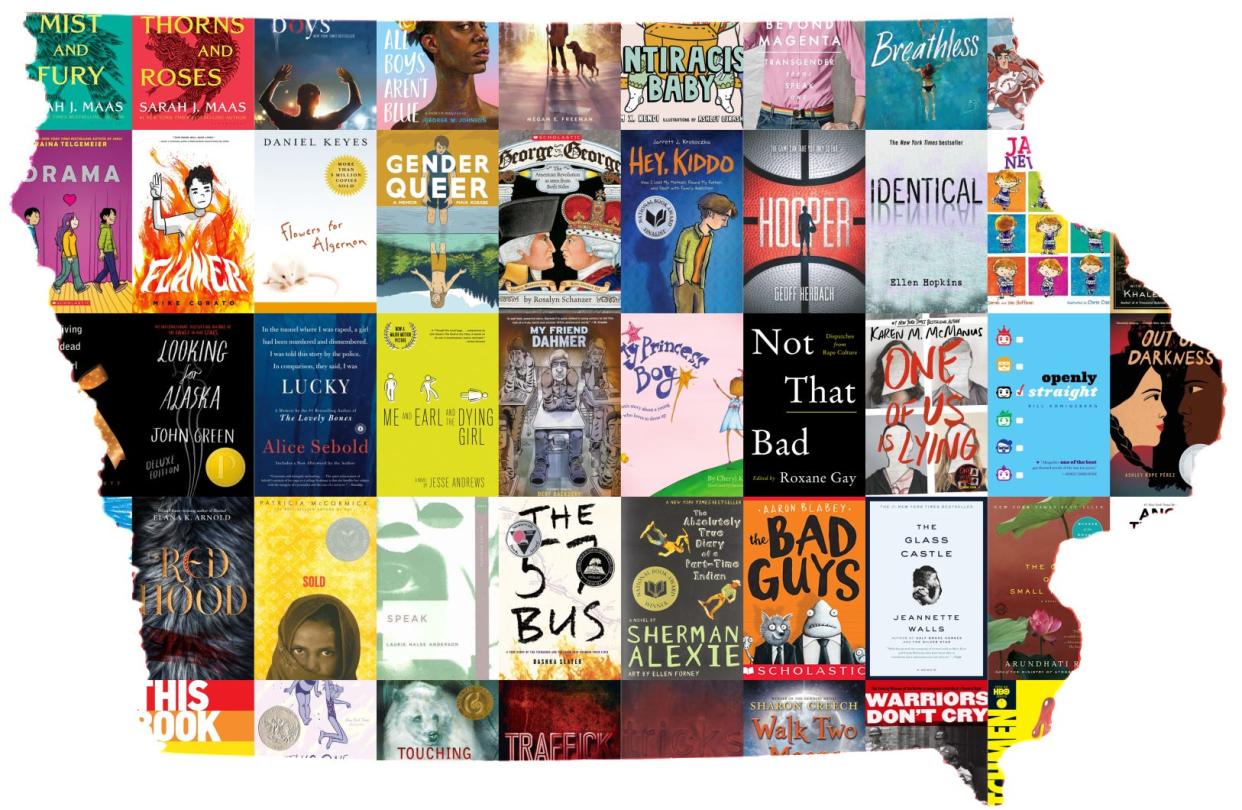
Part of an occasional series
Waverly Zhao wonders how students are supposed to understand freedom when books are taken away.
The 2023 Johnston High School graduate, who is a person of color and part of the queer community, said she was deeply affected by books she read in school such as "The Hate U Give" by Angie Thomas, a novel about a Black 16-year-old who saw a white police officer kill her friend, as well as dystopian novels about government oppression like "The Handmaid's Tale" and "1984."
Yet Thomas' novel has been one of the most challenged books in the nation because of the way it discusses racism and police brutality, as well as its portrayal of sexuality, drug use, violence and profanity.
An exclusive Des Moines Register investigation found it was also among the nine most challenged books in Iowa over the past three years, one of 60 books targeted in Iowa schools by conservative parents and lawmakers who contend they are not "age appropriate" for children.
All of the nine most challenged books in Iowa told stories of LGBTQ people, people of color or both in some way. Zhao, one of several students across the Des Moines metro who organized against book removals in 2021, doesn't believe that's a coincidence.
"As a student in that situation, it was very clear to me they're trying to ban our stories," she said. "The very few times we actually have an opportunity to be represented in education and have a story that we can connect with on a different level — that is essentially being taken away from us."
Book challenges, coupled with complaints that removing books was too difficult, ultimately led Republican lawmakers to pass Senate File 496, a sweeping education law that bans books depicting sex acts and outlaws instruction about gender identity and sexual orientation through sixth grade.
But the Register's investigation found that in the three years before the law passed, the vast majority of Iowa's school districts had no books challenged.
Across the state's 327 school districts, 36 received challenges targeting 60 different books, with 100 documented complaints statewide — among them, "The Hate U Give," where review committees in Perry, Oskaloosa and Johnston all decided to keep the title on school shelves.
The Register's inquiry found the books people challenged between August 2020 and May 2023 typically delved into similar themes — often dealing with race, sexual orientation and sexual assault.
About 55% of challenges were for books about people of color, such as "The Hate U Give" and "The Absolutely True Diary of A Part-Time Indian" by Sherman Alexie.
About 47% of challenges were for books featuring LGBTQ people, including "All Boys Aren't Blue" by George M. Johnson and "Beyond Magenta: Transgender Teens Speak Out" by Susan Kuklin.
About 25% of challenges were for books about people who survived sexual violence, inclding "Tricks" by Ellen Hopkins and "Sold" by Patricia McCormick.
(Totals add up to more than 100% because some books had overlapping themes.)
The move to remove books from schools
After Senate File 496 passed and districts started figuring out how to enforce it, "The Hate U Give" appeared on a list of 374 books the Urbandale Community School District initially flagged for removal under the new law, before district officials reversed course and took it and more than 300 other books off the list.
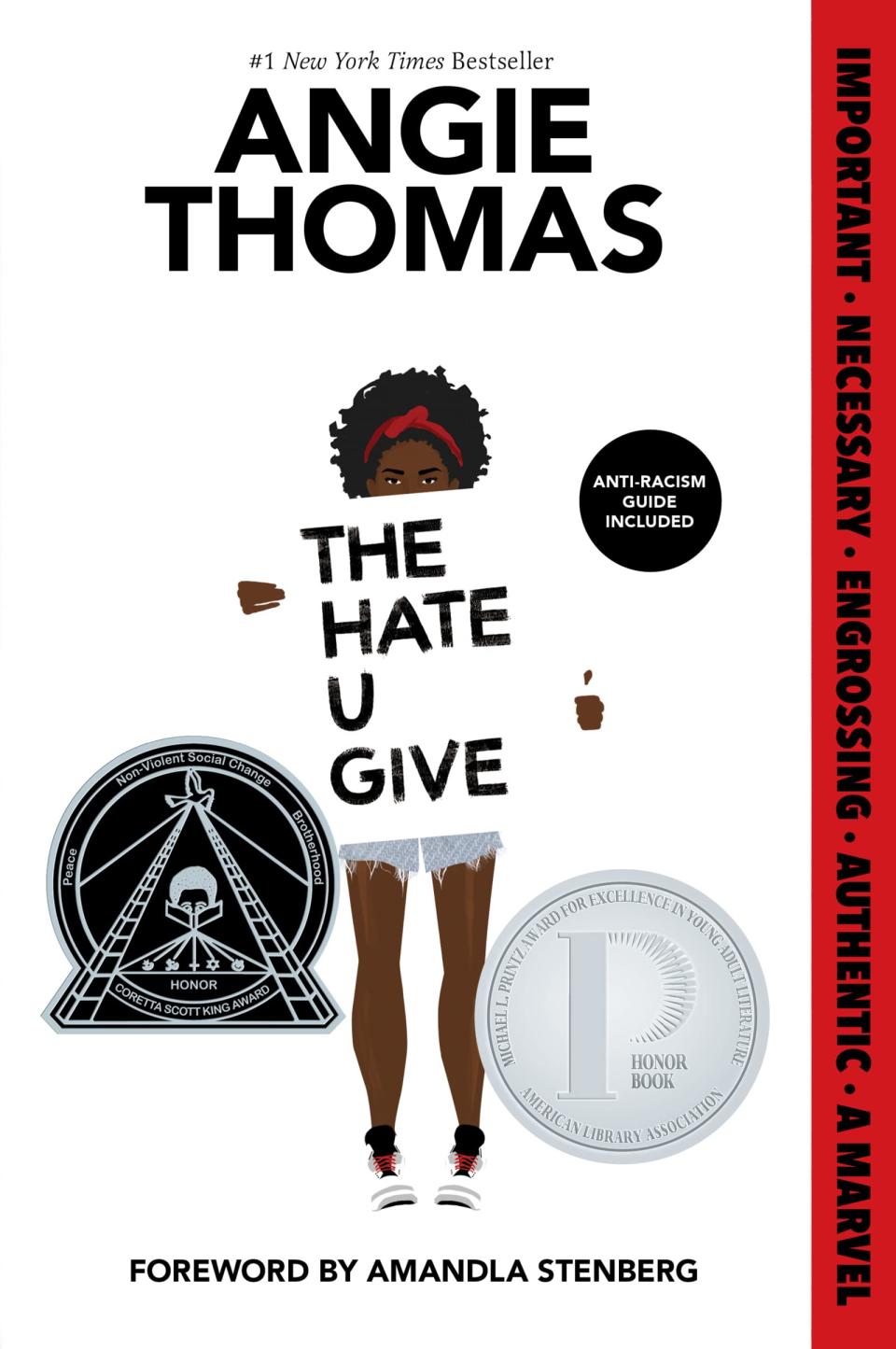
Critics of the new law fear that books about people of color and queer people are in danger of being targeted for removal from school shelves, depriving students of stories that could reflect their own lives or help them empathize with their peers.
At least some of the books most often challenged in Iowa could now be removed from school libraries under the new law, as well as classics such as Toni Morrison's "Beloved" and popular young adult novels like "The Perks of Being a Wallflower" by Stephen Chbosky.
Supporters of Senate File 496 have said instruction about gender identity and sexual orientation is inappropriate for younger students, while books with sex acts are akin to pornography and unsuitable for schools.
“I feel like you can elicit those same feelings without having to describe those things in such graphic detail,” said Teri Patrick, a member of the conservative Moms for Liberty, who challenged books in the West Des Moines school district and who is running for the school board.
Jemma Bullock, a 2023 Ankeny High School graduate who is bisexual, also led a 2021 student effort against book removals after four were challenged in her district. She said she will never forget reading "The Hate U Give" in middle school and what it taught her about racial injustice and profiling — something she never encountered growing up in a community that is more than 90% white. Bullock is also white.
"The idea that there's not going to be opportunities for any student to read books like that, where they could possibly have thought-changing, thought-provoking, life-changing moments, where they realize these are actually things that happen, is very sad and very scary," she said.
More: What to know about the 9 most challenged books in Iowa schools, from 'Tricks' to 'Lawn Boy'
What kinds of books were challenged in Iowa before the new law passed?
Some of the most challenged books in Iowa were about the experiences of people of color and often drew from the authors' lived experiences: "The Hate U Give"; "The Absolutely True Diary of a Part-Time Indian" by Sherman Alexie; "All Boys Aren't Blue" by George M. Johnson and "Lawn Boy" by Jonathan Evison.
“Removing these books from shelves leaves a hole in the American experience that could have students of color questioning their own validity," said Betty Andrews, president of the Iowa-Nebraska NAACP.
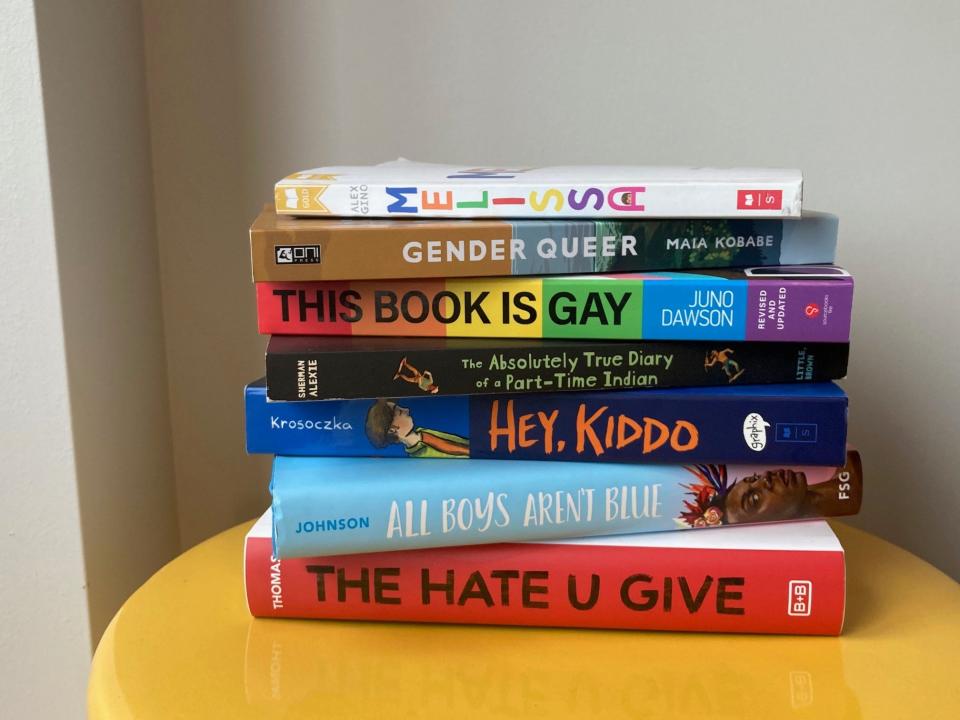
Andrews emphasized that "The Hate U Give" is a bestseller that provides insight into the real experiences of many Black Americans with racial profiling and police shootings. She said pushback to a book challenged and retained in Anamosa, the poem collection "Woke: A Young Poet’s Call to Justice," is a response from those who want to pretend racial disparities do not exist.
"It is unfortunately a push against people standing up for racial justice," Andrews said.
Advocates for LGBTQ Iowans and Iowans of color said they were not surprised by the Register's findings, given the state's political climate.
Gabby Guerra Ceron, who is queer and whose family immigrated from El Salvador, is the program director at Al Éxito, an advocacy organization in Des Moines. She worries for her students over what she sees as attempts to erase their stories.
"What we’re doing is we’re hurting students by telling them that they don’t belong, by limiting their access to the stories that they can read or the people that they can reach out to for help," she said. "This can’t be good for students’ mental health, knowing that their identities are being questioned and debated about daily by people in power.”
Challenged books over the past three years often featured LGBTQ people and were rooted in the authors' or subjects' lives, including "All Boys Aren't Blue," "Lawn Boy," "Beyond Magenta: Transgender Teens Speak Out" by Susan Kuklin and "Gender Queer."
“While the metrics of the report are shocking to the conscience, they are not surprising," said Keenan Crow, director of policy and advocacy for One Iowa. "No matter what language they want to use, it's clear from the numbers that the legislators advancing these book bans are uncomfortable with books that represent people and families who aren’t exactly like them.
"Public school libraries serve everyone, however, and everyone is therefore entitled to find books that reflect their families, experiences and backgrounds on the shelves. Anything less is a disservice to the community."
Meanwhile, Iowa educators are faced with the dual demands of providing illuminating stories to students while following the new law.
"We are certainly following the law as signed into place by the governor," said Des Moines Public Schools Superintendent Ian Roberts, but he added, "the research tells us that exposing our students to a healthy amount of fiction and nonfiction will improve their creativity, their imagination, their social skills, will improve their empathy, which now, more than ever, is incredibly important."
Challenged books in Iowa tell stories of sexual abuse
While LGBTQ stories became an intense focus of the Legislature, the Register's review also found stories of people who survived sexual violence often were targeted for removal.
About one out of every four challenges fit that category, including titles such as "Tricks," "Push" by Sapphire, "Sold," and "The Kite Runner" by Khaled Hosseini.
People who have experienced sexual violence already feel isolated, but books, especially those that share other survivors’ experiences, have the power to create community, said KellyMarie Meek, coordinator of prevention and public health initiatives at the Iowa Coalition Against Sexual Assault.
Those stories, Meek said, might be the thing that could help people find hope, healing and closure. Books can teach empathy, help foster a safe space, and at times, provide steps to navigate tough and sensitive moments, she added.
According to the Rape, Abuse and Incest National Network, one in nine girls and one in 20 boys under the age of 18 has experienced sexual abuse or been assaulted. Data also shows that teenage girls between the ages of 16 and 19 are four times more likely than the general population to be victims of rape, attempted rape or sexual assault.
“We’re talking about folks that are in elementary schools and middle schools and high schools,” Meek said.
Challengers say they're trying to protect students from inappropriate books
Parents who challenged books in their districts and later championed the new law were primarily concerned about sexually explicit content in schools, the Register's data shows. Seventy-six percent of book challenges were over complaints of sexual content.
Many of the most challenged books in Iowa do contain frank depictions of sex, but critics of book removals say passages are being taken out of context to falsely portray artistic works as porn, not literature.
More: Iowa House volleys broad education bill with LGBTQ restrictions back to Senate. What it does:
Patrick, a member of the Moms for Liberty conservative activist group pushing for book removals, told the Register that she asked for "Gender Queer" and "All Boys Aren't Blue," both LGBTQ coming-of-age stories, to be removed in the West Des Moines Community School District.
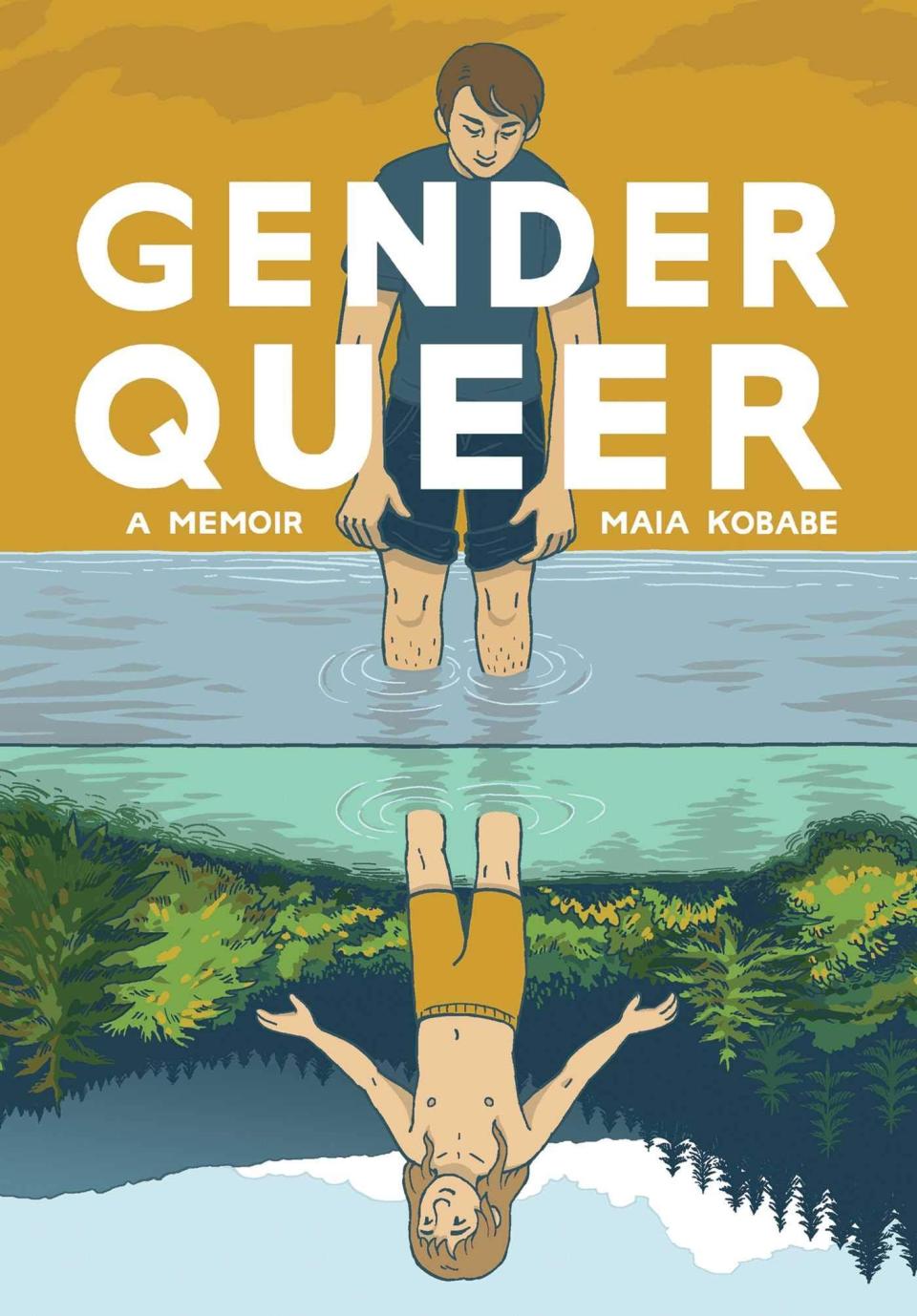
She also challenged several books that included depictions of sexual assault and two heterosexual romance novels, Patrick said. It was one of the “biggest misunderstandings” that book challenges targeted LGBTQ books, she said.
The Register's data shows most challenges for books with LGBTQ themes were over sexual content or seual references.
“I feel like it doesn’t matter if it’s heterosexual, homosexual, what the sexual preference is,” Patrick said. “There are better books that can serve kids than books that are sexually explicit in those graphic details.”
Patrick made a similar argument for challenged stories of sexual assault survivors.
One of these books was “Lucky," Alice Sebold's memoir about being sexually assaulted. Patrick challenged the book for its graphic depictions of assault — and because Sebold’s case, described in the memoir, resulted in an innocent man’s wrongful conviction.
Patrick said the new law is a clear, sound measure to sort through books in school, but she’s still waiting to hear from the West Des Moines district about how they plan to implement the new rules.
Large number of challenges were over profanity or violence
About one-quarter of the book challenges were related to profanity. Fourteen percent were over violence in books, 8% were for "obscene material," another 8% were for drug use and 5% were for alcohol use.
Meanwhile, 5% of challenges were for anti-police sentiment and 4% were over the depiction of racism or slurs.
Kyle Baxter, a former school board member in Perry, challenged "The Hate U Give" as required reading for his daughter's sophomore class. In his challenge documents, Baxter took issue with the book's use of profanity and believed the book would normalize rioting, teen drug use and sex.
Baxter wrote in the challenge that the book was politically divisive, could teach students to generalize based on skin color and pushed a narrative that police are intentionally trying to harm Black people. Baxter's challenge was unsuccessful and he opted to have his daughter read a different book.
As a former school board member, he acknowledges research shows students are more engaged in school if they see themselves reflected in lessons, the teaching staff and literature. The majority of Perry students are Hispanic.
However, he questioned whether the book — partly based on Los Angeles-area communities — reflected Perry or Des Moines. Elementary students do not even see differences between each other and do not start out life with prejudices, he said.
“When you start picking that up, is when you start creating more problems … they get taught that they're different,” Baxter said.
What comes next for books in Iowa schools?
During the Register's investigation, some district officials told reporters certain challenged books, such as "All Boys Aren't Blue" and "Gender Queer," likely will be removed under the new law.
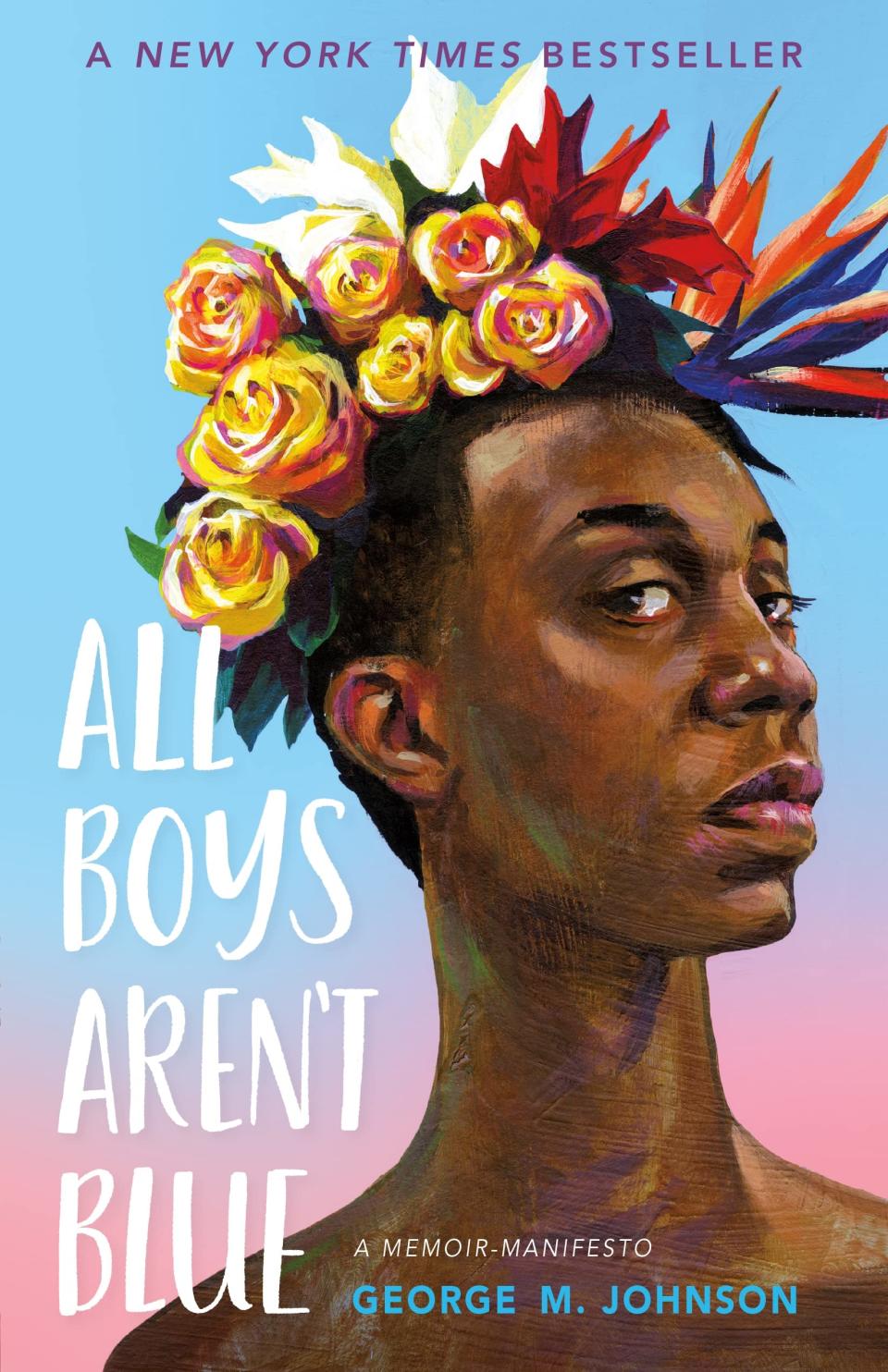
Districts have been struggling to implement the new law in the absence of state guidance, taking different routes that result in different books targeted for removal. While the new law outlaws "instruction" about gender identity or sexual orientation for younger students, it remains unclear whether that also applies to books.
Several districts have told the Register they will not have a formal removal list.
Already, some of the books in the Register's data have appeared on districts' removal lists, such as "Gender Queer," "Lawn Boy" and "All Boys Aren't Blue," alongside other popular books and classic novels that were never challenged.
The fallout is having an impact on classrooms: Manson Northwest Webster Community School District teacher Anthony “Skip” Olson taught “The Absolutely True Diary of a Part-Time Indian” to his middle school language arts students for nearly a decade.
The first-person novel tells the story of a Native American teenage boy who lives on a reservation and attends a predominately white school outside of his community. The book was challenged eight times in Iowa, usually for its profanity and sexual content, including references to masturbation and erections, according to the Register's data.
Olson chose the book because it covers a range of topics, including racism and poverty.
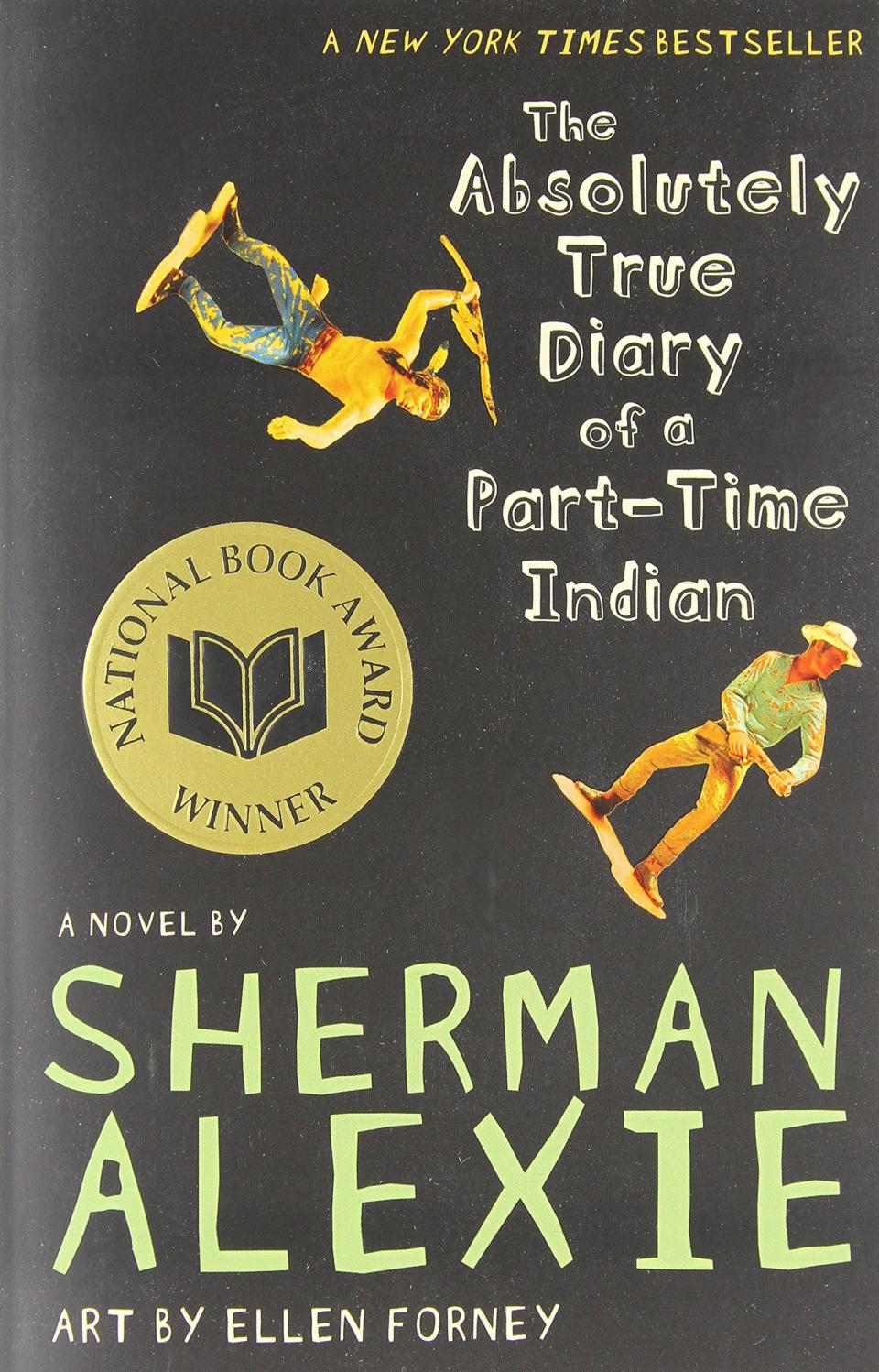
“I picked it up because it's very accessible,” he said. “It talks about some very difficult things like alcoholism to (reservation) life to loyalty.”
Olson has since dropped the book from his lesson plan, he said, because of new district guidance under Senate File 496.
“I am not taking any books off my shelf,” Olson said. “If a kid approaches me and says ‘I'd like a book about (a) transgender person.’ I’ve got one for you.”
Chris Higgins covers the eastern suburbs for the Register. Reach him at chiggins@registermedia.com or 515-423-5146 and follow him on Twitter @chris_higgins_.
Katie Akin is a politics reporter for the Register. Reach her at kakin@registermedia.com. Follow her on Twitter at @katie_akin.
Samantha Hernandez covers education for the Register. Reach her at (515) 851-0982 or svhernandez@gannett.com. Follow her on Twitter at @svhernandez or Facebook at facebook.com/svhernandezreporter.
Phillip Sitter covers suburban growth and development for the Des Moines Register. Phillip can be reached via email at psitter@gannett.com. He is on Twitter @pslifeisabeauty.
F. Amanda Tugade covers social justice issues for the Des Moines Register. Email her at ftugade@dmreg.com or follow her on Twitter @writefelissa.
This article originally appeared on Des Moines Register: Most challenged books in Iowa feature LGBTQ themes, people of color

